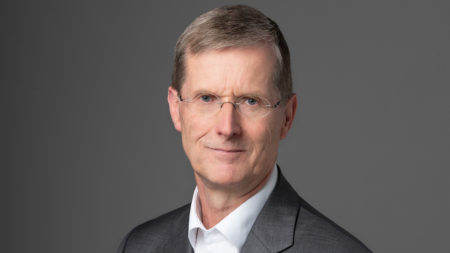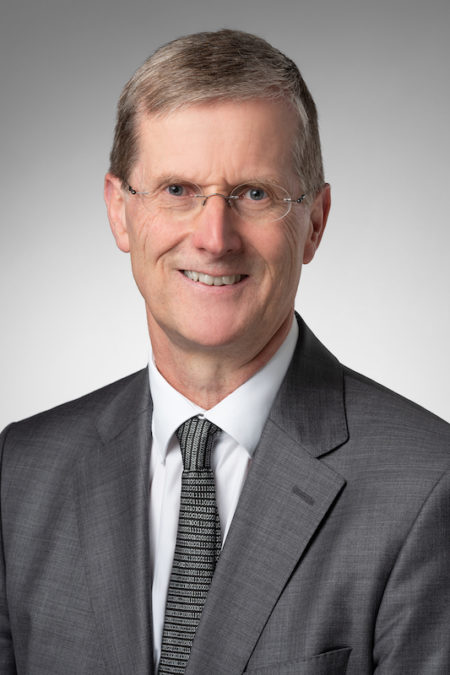
Since 2018, Professor Dr. Karl-Heinz Niemann of the University of Applied Sciences and Arts in Hannover, Germany, has been leading a research project on energy efficiency, utilizing OPC UA to build a unified energy model. As part of the “Future Lab for Industrial Production,” his team is integrating secure data sharing between the stakeholders along the horizontal value chain of a product. This helps with providing access to the production data for the data analytics staff.
In parallel to this work, they also host the Digital Center for Small and Medium-sized Companies, supporting these businesses in their progression toward Industry 4.0.
IoT_EnRG
A third area of research, centers on energy efficiency, wherein Dr. Niemann is running a project called, “Development of energy management interfaces for IoT technologies” (IoT_EnRG). This is a joint research project with the Helmut Schmidt University, in Hamburg, Germany with Professor Dr. Alexander Fay. The project has a special emphasis on data acquisition from the field and the consolidation of this data in a unified model.
The IoT Energy Project is German-government funded within the Joint Industrial Research Project, which is a program of cooperation between the two universities mentioned and the industrial sector. Since the project is in a kind of pre-competitive research phase, companies cooperate with the universities in order to solve problems that are relevant, looking for ways to get energy-relevant data from the field to the supervisory level, in a standardized way. Overcoming these difficulties is impaired by the challenges of quite a diverse infrastructure at the factory floor, with different protocols or different ways to communicate data.
Know the Consumption
The idea behind the project was that, if one wants to improve their energy efficiency, it’s important to know the energy consumption… and if one wants to know the energy consumption, it’s necessary to acquire data from the field in order to make it available to upper levels of the automation system, especially the energy management system.
Traditionally, there are different ways in which automation systems acquire such energy data. For instance, there are energy profiles like PROFIenergy or CIP-Energy or sercos Energy, wherein all these standards use different terms and semantics for power consumption; so, this introduces the first challenge to overcome.
Notwithstanding myriad naming conventions, the focus remains on one thing, understanding the energy consumption; however, a second challenge arises because automation systems use different protocols. It’s uncommon to have only one communication protocol ubiquitously deployed.
To make matters worse – the triple-threat – control systems use diverse data formats; signed integer, float 32, float 64, to name a few. It costs a lot of money and effort to adapt all these messages because, at the energy management level, where these data ultimately come together, it is necessary to have a unified approach to overcoming all three challenges so that all data is received with identical naming and identical data formatting.
The project team started with analyzing each of the different representations of energy data, looking to see if there was a methodology for harmonization. As a result, the team is now formulating an energy model that merges the information into a format where the energy data is unified into a single data model, thus, allowing the delivery of energy information to the supervisory level in a unified format.
The project recognized, very early, that OPC UA was a necessary tool to acquire and transport data from the field to the energy management system in a standardized way. Furthermore, when considering security, OPC UA is a sound methodology for securely communicating information modelling.
Joint Working Group
Recently, a Power Consumption Management Joint Working Group between ODVA, OPC Foundation, PI, and VDMA was established to develop the OPC UA interface standard for energy consumption data.
There is considerable alignment between this Working Group and the research project.
Professor Niemann has joined the joint working group on behalf of PROFIBUS and PROFINET International, recognizing large synergies between his team’s research and the JWG. Each is focused on analysis of the different energy protocols, proposing a joint architecture, and proposing a joint data set model. The research project is making their work products, especially the energy information model, available to the joint working group so that the participants will be able to review the results and to decide on possible re-use.
When asked about the head-start the research project injects into the joint working group, Professor Niemann said, “We have the chance to build on a base of three years of work donated from our project, and so, I’m quite happy and most enthusiastic that we can accelerate the products of this working group significantly”.
 Prof. Dr.-Ing. Karl-Heinz Niemann
Prof. Dr.-Ing. Karl-Heinz Niemann
Professor of process informatics and automation technology
Hannover University of Applied Sciences and Arts